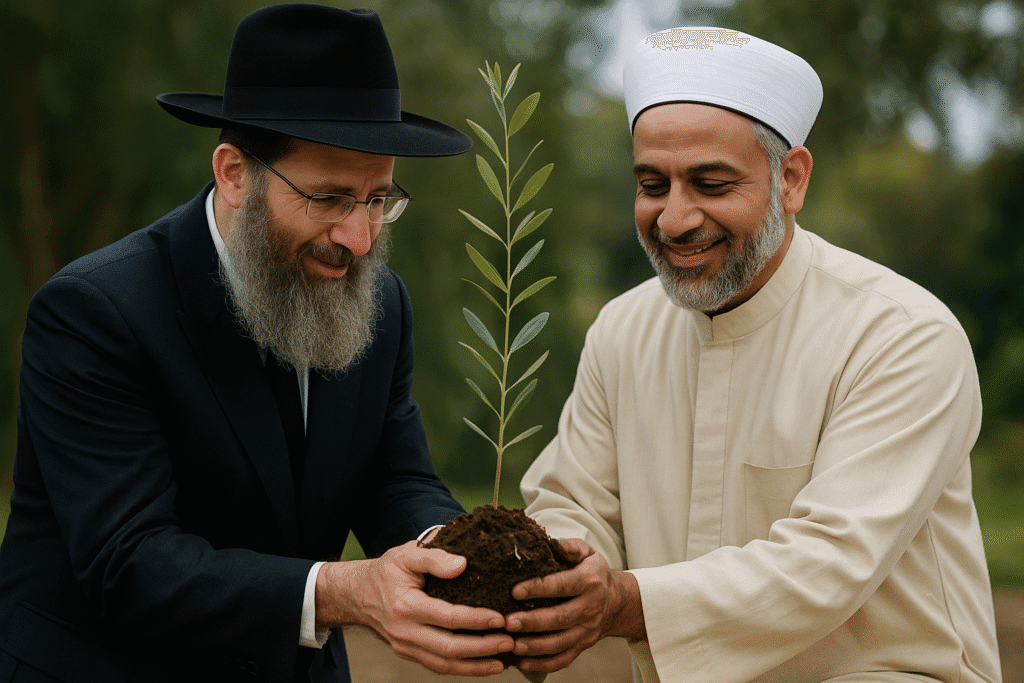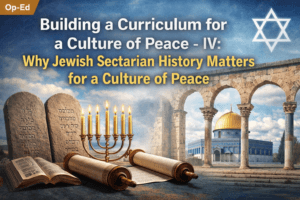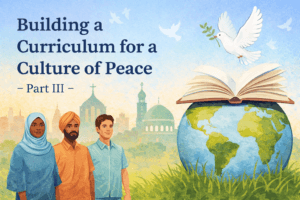From Conflict to Covenant: Rediscovering the Sacred Bridge Between Islam and Israel

In a world consumed by fear, prejudice, and politics, the moral duty of faith has never been more urgent. From Jerusalem to Jakarta, New York to Nazareth, the call to peace is being drowned out by voices of hate. Yet, at the heart of both Islam and Judaism lies an unbroken truth—peace is not weakness; it is worship.
Faith as a Bridge, Not a Battlefield
“Blessed are the peacemakers, for they shall be called the children of God,” declares the Bible (Matthew 5:9).
“I did not send you but as a mercy to the world,” reminds the Qur’an (21:107).
“Seek peace and pursue it,” echoes the Psalms (34:14).

Across these sacred texts, the command is unmistakable. The faithful are called not to inflame division but to embody mercy. Both Muslims and Jews—heirs of Abraham’s covenant—share a sacred obligation to heal, not harm.
“The world stands upon three things: upon truth, upon justice, and upon peace.” — Pirkei Avot 1:18
Zionism Misunderstood: A Shared Love for Homeland
Zionism has too long been distorted by fear and misinformation. At its essence, it is a movement rooted in belonging—a yearning to return home. As the Talmud beautifully notes, “Ten measures of beauty descended to the world; nine were taken by Jerusalem.”
Muslims, too, share this sacred sentiment. The Prophet Muhammad (peace be upon him) taught, “Ḥubb al-waṭan min al-īmān”—Love for one’s homeland is part of faith.
This shared devotion to homeland should unite believers, not divide them. When both sides recognize each other’s humanity and heritage, dialogue replaces despair.
History’s Forgotten Context
After World War II, the world witnessed an explosion of independence. India, Pakistan, Ghana, and Indonesia emerged as sovereign nations. Israel’s establishment in 1948 was part of this same historical current of decolonization.
Yet, Israel remains uniquely contested—a nation burdened with exceptional scrutiny. Recognizing its right to exist does not negate the Palestinian right to freedom. Rather, it acknowledges that justice must be inclusive to be genuine. “Nation shall not lift up sword against nation, neither shall they learn war anymore.” — Isaiah 2:4
Shared Sacred Ground
For both Jews and Muslims, land is not just territory—it is testimony. The Qur’an honors Moses’ guidance: “O my people! Enter the holy land which Allah has assigned unto you.” (5:21)
And the Torah echoes: “I will give to you and to your descendants the land of your sojournings, all the land of Canaan, for an everlasting possession.” (Genesis 17:8)
These texts, when understood together, do not call for rivalry but responsibility. Both peoples are stewards of sacred trust.
A Moral Reckoning Through Numbers
United Nations member states: 193
Organization of Islamic Cooperation: 57
Arab League: 22 countries across 5 million square miles with 490 million people
Israel: 8,600 square miles, 10 million people—2 million of whom are Arab citizens
When such disproportionate hostility is directed at one small nation, it ceases to be about geography and becomes about perception. True faith calls us to fairness, not fanaticism.
How can such a small nation bear the world’s moral fury? True believers must ask whether their passion for justice has been hijacked by politics instead of compassion.
Peace Through Partnership, Not Power
The Abraham Accords and Muslims–Israel Dialogue initiatives are not political strategies—they are moral awakenings. These efforts recall Abraham’s legacy of hospitality and kinship.
“The test of faith,” wrote Rabbi Jonathan Sacks, “is whether I can make space for difference. Can I see God’s image in one who is not in my image?”
Prophet Muhammad (peace be upon him) similarly taught: “None of you truly believes until he wishes for his brother what he wishes for himself.” (Sahih Bukhari)
When these truths converge, dialogue becomes divine.
Faith Over Fear: The Sacred Path Forward
The path to reconciliation begins where fear ends. The Torah commands: “Turn from evil and do good; seek peace and pursue it.” (Psalm 34:14)
The Qur’an reinforces: “Indeed, Allah loves those who act justly.” (49:9)
And together, they remind humanity that peace is not a treaty—it is a transformation of the heart.
“If not now, when?” — Rabbi Hillel
“Hold fast, all together, to the rope of Allah, and do not be divided.” — Qur’an 3:103
Faith over fear.
Peace over pride.
Compassion over conquest.
When Muslims and Jews reclaim the promise of peace, the world will rediscover that God’s covenant was never meant for war—it was meant for love.
—————————–
Sheikh Musa Drammeh, Imam, community organizer and renowned interfaith leader in New York, is the founder of Muslim-Israel Dialogue and The Unbreakable Bonds. He is also the founder and publisher of Muslim Media Corporation in New York.














